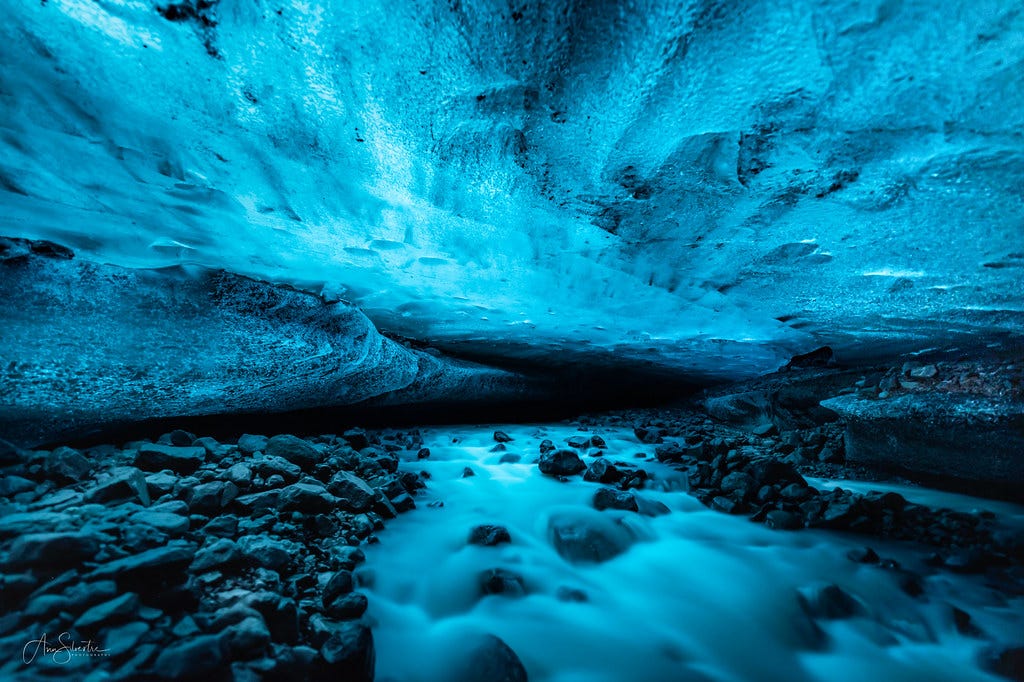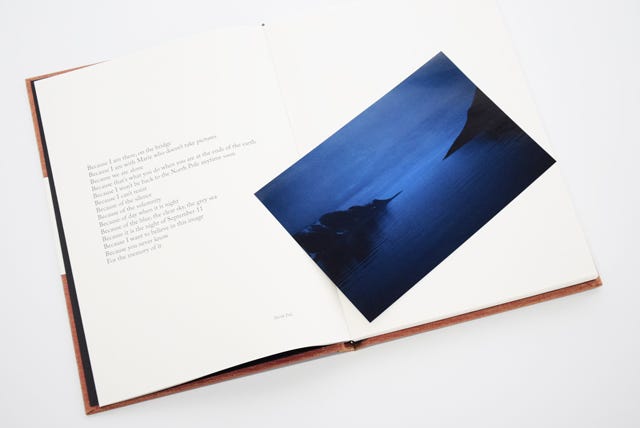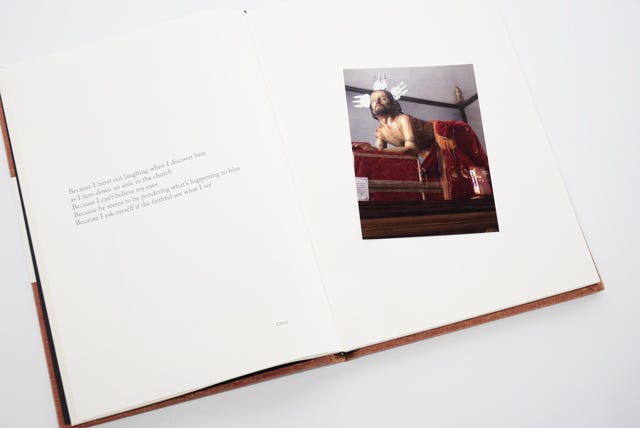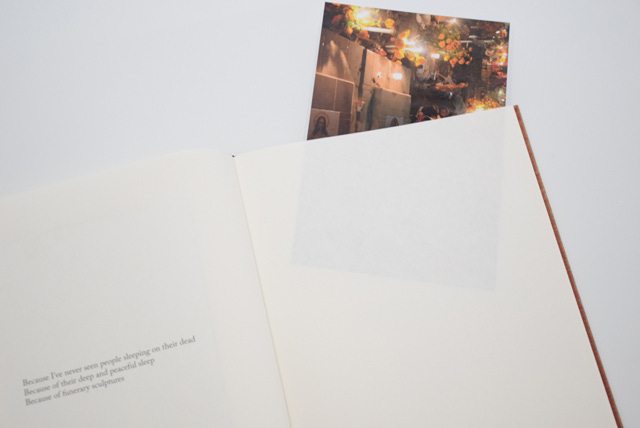Subglacial Rivers, A Love Poem, Because... & Either/Or
Winter, Valentine's Day, Sophie Calle & Elif Batuman + My Current Obsessions
I’ve been feeling quiet lately, like winter, a landscape under snow, even in Austin where the cold doesn’t get as bad. It’s almost like a habit I carry with me from the East Coast. I know there are small plants taking root in the dirt, even if we can’t see them. The ocean is like that too at times: the way rip currents form near still water. In Antarctica, beneath vast sheets of ice, there is a network of rivers and lakes. Those are called subglacial rivers. Maybe the feeling is like that: A lot of movement beneath a surface which is frozen solid.

T.S. Eliot wrote that April is the cruelest month, but I’ve always felt sure it was February, when everything is at its darkest, at its worst. I try to stave it off: I see friends, I book flights, I make plans. But it still hangs there, the winter melancholy. Everything is fine, but nothing is fine, all at once. A single day can be beautiful, but in the context of the suffering of the rest of the world, even that can feel like a secret treat you don’t deserve.
But you keep going. You take your dog to visit your friends in their yard and she plays in the leaves while they laugh. You can’t hug because there is a new variant, but the sun is out and the sky is blue, and even though your enthusiasm is damped because you can’t hug them and you don’t know what to do with all of your love for them, the dog buries her face in a pile of leaves and for a moment all three of you are laughing at the dog, and it feels so nice that for a moment you forget it is February, you forget the variant, you forget it is the cruelest month.
And then I remember it will be my birthday soon, a passing thought, though there will be cake.
But First… A Love Poem
It’s Valentine’s Day, I’m sappy, sorry, I just love this one. I’m a romantic at heart. So you’ll just have to read it.
Mountain Dew Commercial Disguised as a Love Poem
by Matthew Olzmann
So here’s what I’ve got, the reasons why our marriage
might work: Because you wear pink but write poems
about bullets and gravestones. Because you yell
at your keys when you lose them, and laugh,
loudly, at your own jokes. Because you can hold a pistol,
gut a pig. Because you memorize songs, even commercials
from thirty years back and sing them when vacuuming.
You have soft hands. Because when we moved, the contents
of what you packed were written inside the boxes.
Because you think swans are overrated and kind of stupid.
Because you drove me to the train station. You drove me
to Minneapolis. You drove me to Providence.
Because you underline everything you read, and circle
the things you think are important, and put stars next
to the things you think I should think are important,
and write notes in the margins about all the people
you’re mad at and my name almost never appears there.
Because you made that pork recipe you found
in the Frida Kahlo Cookbook. Because when you read
that essay about Rilke, you underlined the whole thing
except the part where Rilke says love means to deny the self
and to be consumed in flames. Because when the lights
are off, the curtains drawn, and an additional sheet is nailed
over the windows, you still believe someone outside
can see you. And one day five summers ago,
when you couldn’t put gas in your car, when your fridge
was so empty—not even leftovers or condiments—
there was a single twenty-ounce bottle of Mountain Dew,
which you paid for with your last damn dime
because you once overheard me say that I liked it.
Sophie Calle: Because…
I’ve written pretty extensively about the importance of Sophie Calle’s art, but I wanted to focus on her books for a moment. I was talking with a friend who is an editor at a publishing house about the way her books stand out because each one is a production full of innovation -- from pages of braille to CDs to hidden folders to red-gilded pages, they are more like art objects than books. But because the production costs are so high, the books aren’t cheap -- I get one or two of her books a year, usually as gifts.
And there is a ceremony to reading her books -- I’m not sure if it’s the cost or how rare it is to spend time with them, or that I know each one is going to have a surprise inside that will likely make me cry. I approach them quietly, reverently, the way a priest handles a bible.
I bought Because… for myself. The cover is a deep red fabric with gold shimmer woven through. The full title of the book is a bit Fiona Apple length:
“Because of this story of a passer-by
gushing at a baby in a stroller,
whose mother exclaims
“And you haven’t even seen his picture!”
The title comes from an event Calle did with Hervé Guibert, Jacques Monory and Denis Roche. The artists were discussing their practice regarding photography and Roche came up with a concept: To tell the story leading up to the moment each photograph was taken, and then showing the photograph to the audience only for as long as the duration of the shutter speed. Calle says they were booed and beer cans were thrown at their heads. The book is dedicated to Roche.
I came to Because… cold, having done no research and not really sure what to expect beyond the introduction. And at first I was disappointed and then confused: The first page had a short smattering of text -- beautiful and poetic as always -- and nothing else. As I flipped through the next two pages, more of the same: Short text, nothing else. I began to feel ripped off.
I went back to the first page and realized what I had missed: Every two pages of the book are bound together at the outer edge to create a small folder which holds a photograph. After you read the text, you slide the photograph out of the folder on the opposite page.
I can’t lie: I felt delighted when I figured this out, almost childlike, as if realizing Calle hadn’t let me down at all -- in fact, she had done something more clever than I’d expected.
The text and photograph pairings vary: From moving moments Calle captures with a 94-year old friend who will die soon to jokes to capturing a picture of her father’s hands shortly before he dies, there is a rhythm and a pulse to the project.
And here is where Calle shines -- it’s her trademark ability to orchestrate the emotions of her audience. She manages to break your heart in one moment, and offer you laughter in the next. A gutting meditation on the death of her father which might bring tears to your eyes is neutralized a few pages later when you’re laughing because she found a statue in a church of Jesus on all fours that is highly erotic.
Every book is a surprise, every artwork is daring and grappling with humanity in a way that never fails to move me.
Elif Batuman: Either/Or
I came to Elif Batuman’s first novel, The Idiot, late, like arriving at a party after all the best people have already left. My brilliant friends told me to read it, all of them, as if I were missing out on something and had been for a long time. They were correct: I devoured it. A novel of unrequited or unrealized love between two college students written by anyone else would likely not be so riveting, but Batuman’s wry humor, crisp sentences, and ability to weave knowledge throughout the narrative were compelling enough to make me finish the book in two days. “Nothing really happens,” one of my friends said. “But I can’t stop reading it.”
So when I heard Either/Or was coming out this year, I begged for a galley on Twitter like any other self-respecting human would do. Jason Jeffries from Quail Ridge Books sent me one and I tore into it. For about 25 pages. And then I put it down. And then I picked it up again. Then I got frustrated with it. Then I picked it back up. Then I fell in love with it again and finished it.
Here’s the thing: A sequel is a hard thing to pull off. And Either/Or picks up immediately where The Idiot left us: Selin, our narrator, has said goodbye to her friend and crush Ivan, and they are parting ways for the rest of the summer and into the next semester. All of the deep feelings between them from The Idiot are still mostly unresolved -- and they’ve still never kissed.
The momentum from The Idiot doesn’t quite get off the ground with Either/Or because Ivan is largely out of the picture. Instead, the focus is on Selin in her next year of college and her roommates. We follow along as they find dorm rooms and choose classes, her friends start to date, she has a few interactions with Ivan’s ex-girlfriend, etc. And in the background, we have this unmet desire for Ivan himself to re-appear, which almost never materializes.
This technique is effective in one way: We can feel Selin’s longing because we really want Ivan to show up and get the story going. In another way, it stalls the plot. And without Ivan there as a grounding force, there are sections which feel a bit like filler. Batuman still weaves in her trademark references to literature, art, and philosophy (the sources cited at the end of the book shows exactly how much rigor Batuman has), and the book’s title pulls in core questions driven by Danish philosopher Søren Kierkegaard’s Either/Or. Kierkegaard’s book meditates on the conflict between the ethical and the aesthetic, and Selin grapples with these concepts throughout the book and most effectively toward the end.
But the language falters and rambles in certain areas, particularly in moments when our narrator grasps to find something relevant to say about The Fugees or Tom Waits. These moments feel a bit like narrative dog paddling rather than the meditative approach to writing they were modeled after.
It took me a minute to realize why: Batuman is at her best when there’s a plot her narrator can respond to, when there’s an action Selin can compare and contrast to a book or a work of art or a theory. But when Selin is in liminal moments -- say, hanging out in a dorm room, or just going to classes -- the meaning becomes harder to grasp and apply, the lessons and logic seem less important and pressing.
After that mid-way point, the plot picks up and the book is riveting again -- Selin loses her virginity, goes on a trip, and starts to see other men, and you get glimpses of the brilliance that made The Idiot so profound. But ultimately, without Ivan as a driving force for Selin’s longing and yearning that we can see, Either/Or is just a little more uneven than The Idiot -- and it just doesn’t pack quite the same punch.
Currently Reading:
I Am Going to Steal the Declaration of Independence by Orchid Cugini
The Books of Jacob by Olga Tokarczuk (Translated by Jennifer Croft who has a great essay at Lit Hub explaining her translation process for this magnum opus)
There Are Things More Beautiful Than Beyonce by Morgan Parker
Lapvona by Ottessa Moshfegh
Currently Listening To:
Caprisongs by FKA Twigs (Got meta angel on repeat!!!)
“Arisen My Senses” by Bjork
“I’ve Seen It All” by Bjork & Thom York & Sjon (What a fucking narrative arc in this one!)
Currently Watching:
Euphoria!!!!1








